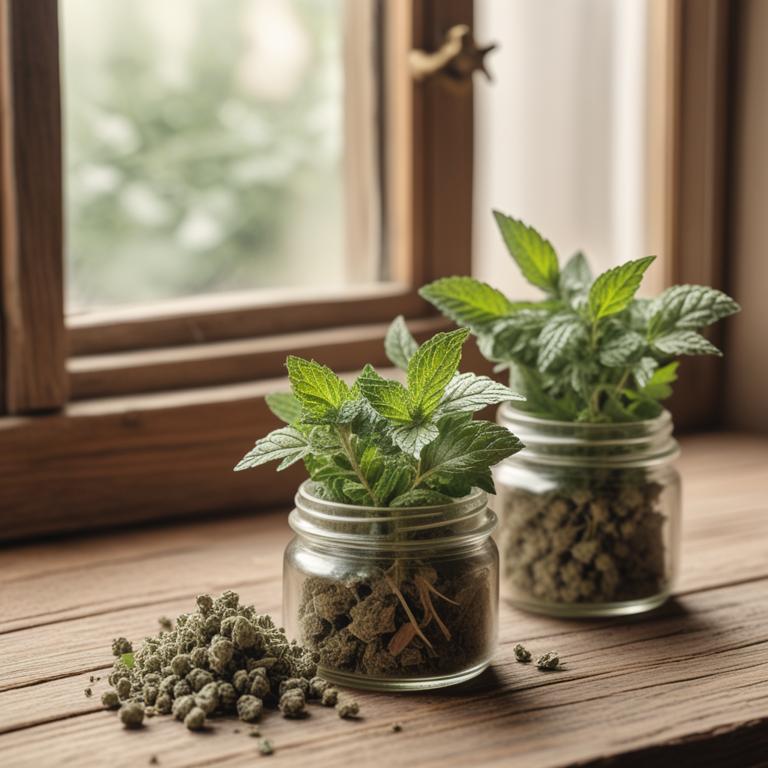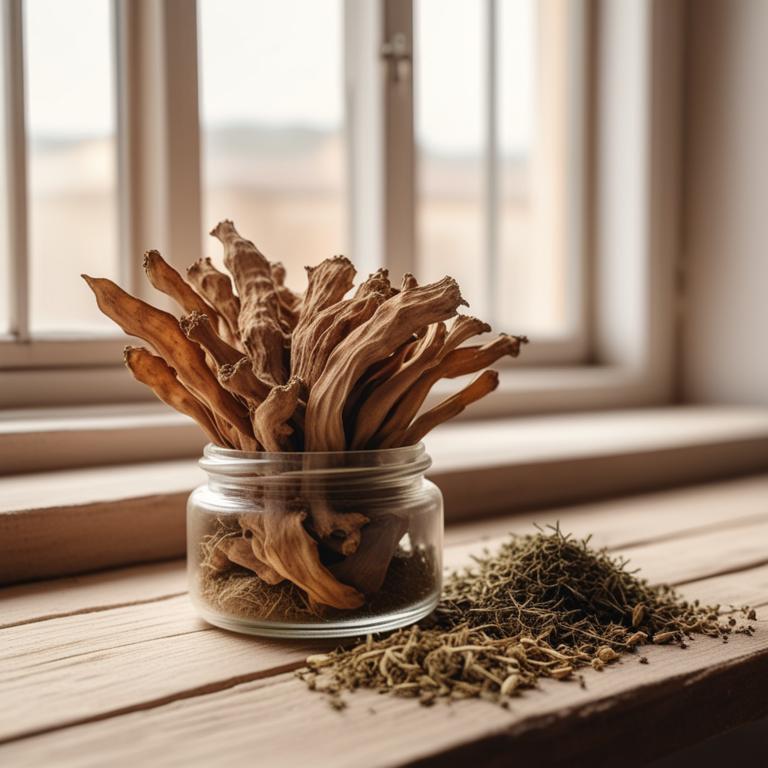Updated: Dec 1, 2024
Herbal Relief for Upset Stomach: Causes, Medicinal Herbs, and Preparations
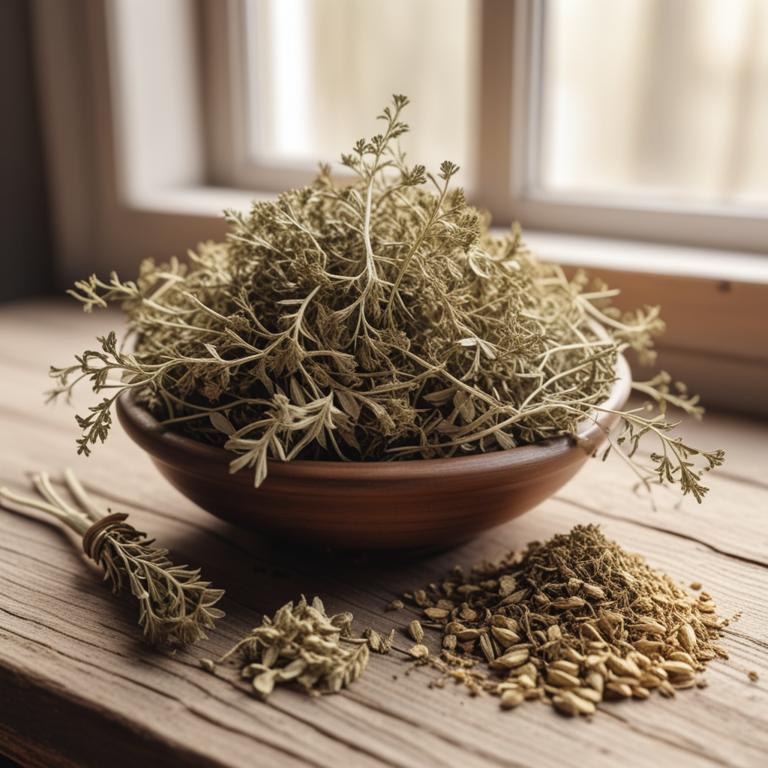
An upset stomach can make everyday life miserable.
You feel bloated, nauseous, and uncomfortable, making it hard to eat, sleep, or even work. The causes can vary - from eating spoiled food to stress, anxiety, or certain medications. Sometimes, an imbalance of bacteria in the gut can also lead to an upset stomach. Fortunately, nature offers some relief. Certain herbs have been used for centuries to soothe an upset stomach.
Ginger, for example, has anti-inflammatory properties that can help calm nausea and reduce bloating. Peppermint oil can also ease digestive issues by relaxing the muscles in the stomach. Licorice root has anti-inflammatory properties that can help heal the mucous lining of the stomach, reducing irritation and discomfort. To use these healing herbs, you can try making a tea by steeping the dried roots or leaves in hot water. You can also take ginger or peppermint oil capsules or rub peppermint oil on your stomach to feel relief.
Some herbal teas, like peppermint or chamomile, can be sipped before bedtime to help calm an upset stomach and promote a restful night's sleep.
Table of Contents
- What causes an upset stomach to occur?
- What are the advantages of using herbs to soothe an upset stomach?
- What are the main medicinal herbs that ease upset stomach?
- What are the herbal remedies most commonly used to alleviate upset stomach?
- What herbs should be off-limits if you have an upset stomach?
- FAQ
What causes an upset stomach to occur?
The main causes of upset stomach are many and varied.
One of the most common causes is food poisoning, which occurs when we eat food that has bacteria, viruses, or other germs in it. This can happen if the food is not stored or cooked properly, or if it's contaminated with germs from other sources. When we eat contaminated food, the germs can cause our stomach to become inflamed and irritated, leading to symptoms like nausea, vomiting, and stomach cramps. Another cause of upset stomach is stress, which can put a lot of pressure on our digestive system. When we're under stress, our body releases hormones that can slow down digestion and make it harder for food to move through our system. This can lead to symptoms like bloating, gas, and stomach pain. Additionally, stress can also weaken our immune system, making us more susceptible to infections that can cause an upset stomach. Infections are another major cause of upset stomach.
These can be caused by bacteria, viruses, or parasites that infect our digestive system. For example, a bacterial infection like salmonella can cause symptoms like diarrhea, fever, and stomach cramps. Viral infections like the stomach flu can also cause similar symptoms. In some cases, infections can be transmitted through contaminated food or water, while in other cases they can be spread through close contact with an infected person. Lastly, gallstones are another cause of upset stomach. Gallstones are small, hard deposits that form in the gallbladder, a small organ that stores bile. When gallstones block the flow of bile, it can cause symptoms like severe stomach pain, nausea, and vomiting. In some cases, gallstones can also cause jaundice, which is a condition where the skin and eyes turn yellow.
Gallstones are often caused by a combination of factors, including a diet high in fat, a family history of gallstones, and certain medical conditions like diabetes.
What are the advantages of using herbs to soothe an upset stomach?
Using certain plants for upset stomach can provide quick relief from discomfort and pain.
One of the main benefits is that they can help to calm the digestive system, reducing inflammation and soothing the lining of the stomach and intestines. This can lead to a decrease in nausea and vomiting, making it easier to keep food and fluids down.
These plants can also help to slow down digestion, giving the stomach time to recover and heal from irritation and stress. Additionally, they can help to regulate bowel movements, preventing constipation or diarrhea. Some plants may also have antibacterial properties, which can help to prevent infections and promote a healthy balance of gut bacteria.
By promoting a balanced digestive system, these plants can help to prevent future episodes of upset stomach and improve overall digestive health.
What are the main medicinal herbs that ease upset stomach?

Herbs can be a great relief for an upset stomach.
One of the best options is Zingiber officinale, or ginger, which has natural anti-inflammatory properties that can help reduce nausea and ease digestion. When you're feeling queasy, ginger can help calm your stomach and make you feel better. Another herb that's great for upset stomachs is Mentha x piperita, or peppermint. Its cooling effect can help soothe the digestive system and ease cramps. Drinking peppermint tea or taking peppermint oil capsules can help calm your stomach and get rid of discomfort. Foeniculum vulgare, or fennel, is another herb that's commonly used to ease digestive issues.
Its seeds contain compounds that can help relax the muscles in your stomach and intestines, which can become tense and spasmodic when you're feeling unwell. Fennel can also help reduce gas and bloating. Licorice root, or Glycyrrhiza glabra, is a natural anti-inflammatory that can help soothe an upset stomach. Its compounds can help reduce inflammation in the digestive tract and ease stomach pain. However, be aware that licorice root can be too sweet for some people's taste, so use it in moderation. Finally, Piper nigrum, or black pepper, can help ease stomach discomfort. Its compounds can help stimulate digestion and relieve nausea.
Black pepper can be used as a spice in cooking or taken as a supplement to help ease an upset stomach.
What are the herbal remedies most commonly used to alleviate upset stomach?

When you have an upset stomach, herbal preparations can be a big help.
One way is with a decoction, which is a strong liquid made by boiling herbs in water for a long time. This is great for herbs like ginger, which has natural soothing properties that can calm your stomach and reduce nausea. Another option is an infusion, which is similar to tea but often uses a stronger herb like peppermint or chamomile. These herbs have anti-inflammatory properties that can help soothe your stomach and reduce discomfort.
A tincture is a liquid extract of herbs that can be taken in small amounts. Tinctures are often used for herbs like dill, which has natural carminative properties that can help ease gas and bloating in your stomach. Herbal teas, made by steeping herbs in hot water, are another popular option. Herbs like fennel and anise have natural digestive properties that can help ease upset stomachs and promote digestion. Finally, some herbal preparations come in capsule form, which can be especially helpful if you have trouble swallowing or if you prefer a more convenient option.
Herbs like peppermint and ginger are often available in capsule form and can be taken as needed to help soothe an upset stomach.
Additional Resources:
What herbs should be off-limits if you have an upset stomach?
If you have an upset stomach, you should be careful when using certain herbs.
Capsicum annuum, also known as cayenne pepper, can irritate your stomach even more and make symptoms worse. The seeds of this plant contain a chemical that can cause heartburn and other problems.
Silybum marianum, milk thistle, is sometimes used to help with liver problems, but it can also cause stomach upset, especially if taken in large amounts. Taxus baccata, yew, is not typically used as medicine, but it's highly toxic and can be deadly if ingested, so it's best to avoid it altogether. Astragalus membranaceus, a Chinese herb, is often used to boost energy, but it can also cause stomach upset, especially in people with pre-existing digestive issues.
Artemisia absinthium, also known as wormwood, is a strong herb that can irritate the stomach and cause digestive problems, especially when taken in large amounts or combined with other herbs.
FAQ
Are there any specific herbs that can prevent upset stomach?
Ginger and peppermint are popular herbs that can help soothe an upset stomach.
Ginger has natural anti-inflammatory properties that can calm digestive issues, while peppermint can ease nausea and bloating.
Many people find relief from these herbs, which can be consumed as tea, added to food, or taken as supplements.
Is it safe to use herbal remedies for upset stomach during pregnancy?
When you're pregnant and have an upset stomach, some herbal remedies might help.
However, be cautious with peppermint, ginger, and fennel. They can ease nausea, but too much peppermint can cause stomach cramps. Ginger is often safe, but check its strength.
Fennel can cause allergic reactions in rare cases.
Are there any herbs that can reduce the frequency of upset stomach?
Ginger has been used for a long time to help with upset stomachs.
It can help reduce the frequency of stomach discomfort and nausea. Some people also find relief with peppermint, which can calm the stomach and reduce inflammation.
These herbs may help your stomach feel better when you're feeling unwell.
Related Articles

Understanding Chronic Hepatitis: Causes and Effective Herbal Remedies
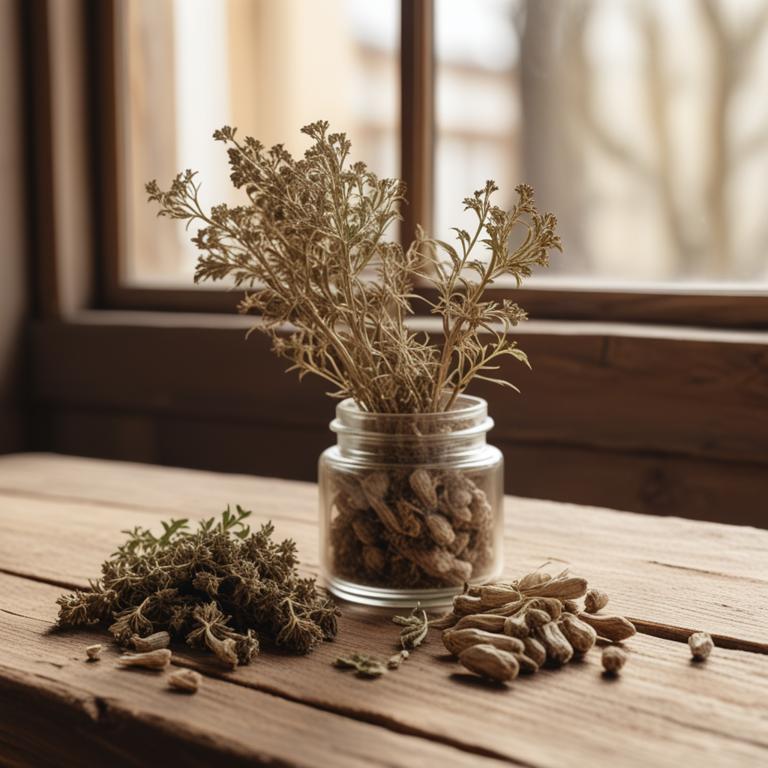
Queasy Stomach Causes and Herbal Remedies: A Comprehensive Guide
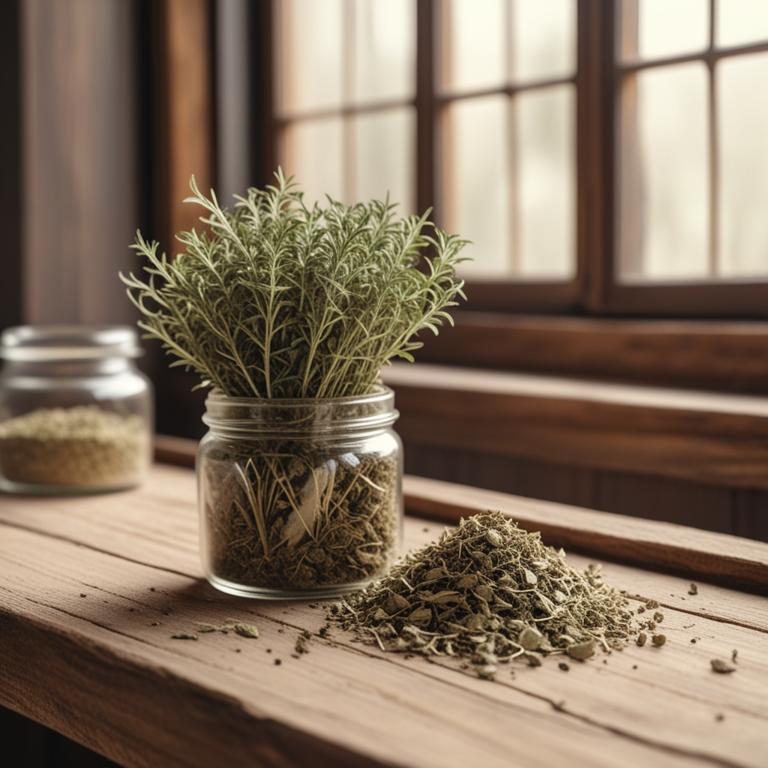
The Causes, Remedies, and Herbal Solutions for Bloating
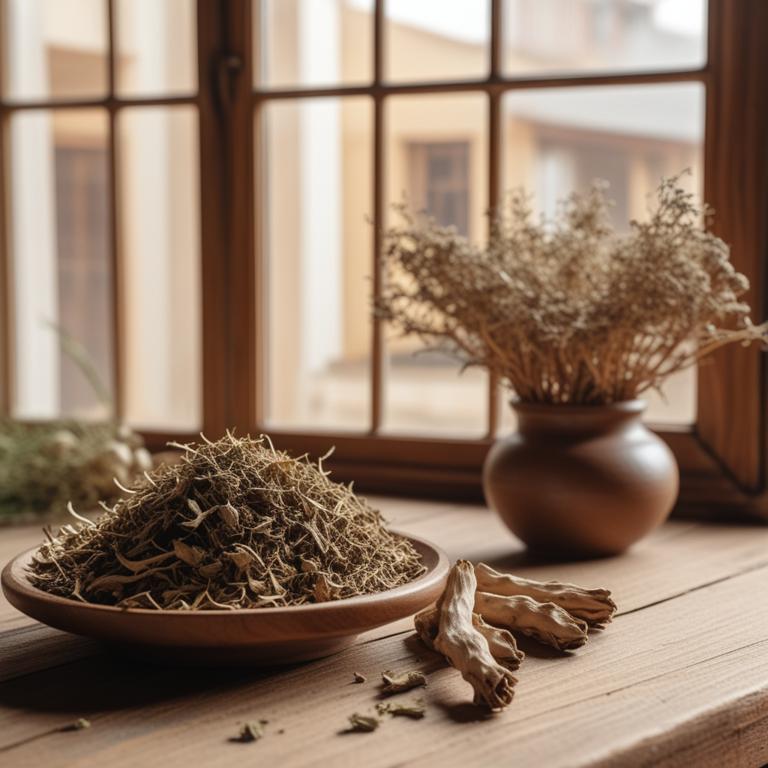
Causes, Symptoms, and Herbal Relief for Acid Reflux
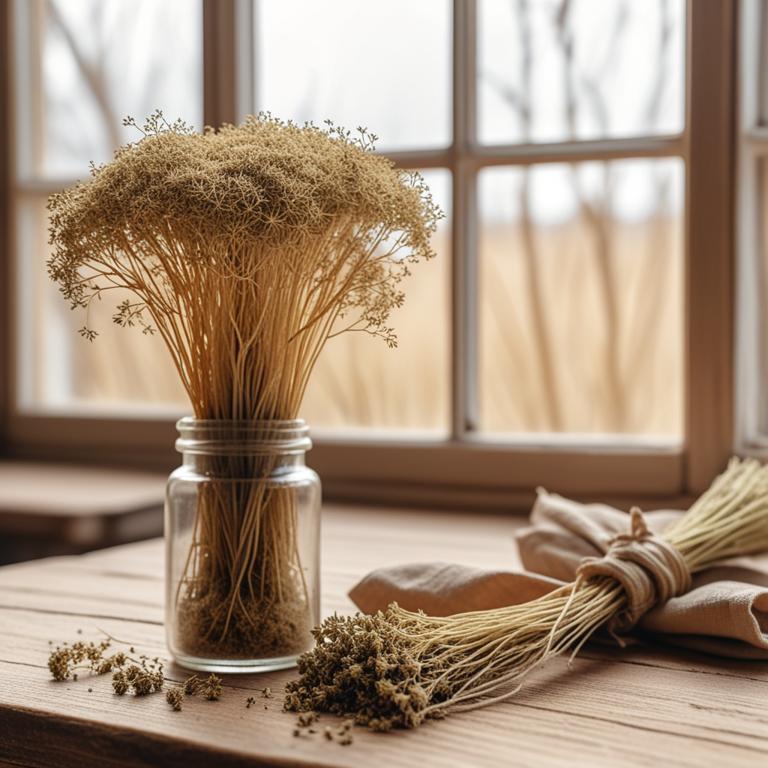
Gas in Stomach Causes, Symptoms, and Natural Herbal Remedies for Relief
